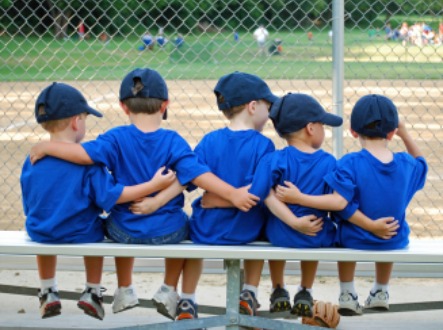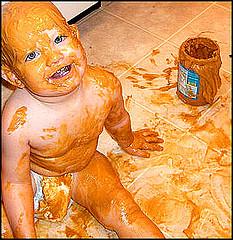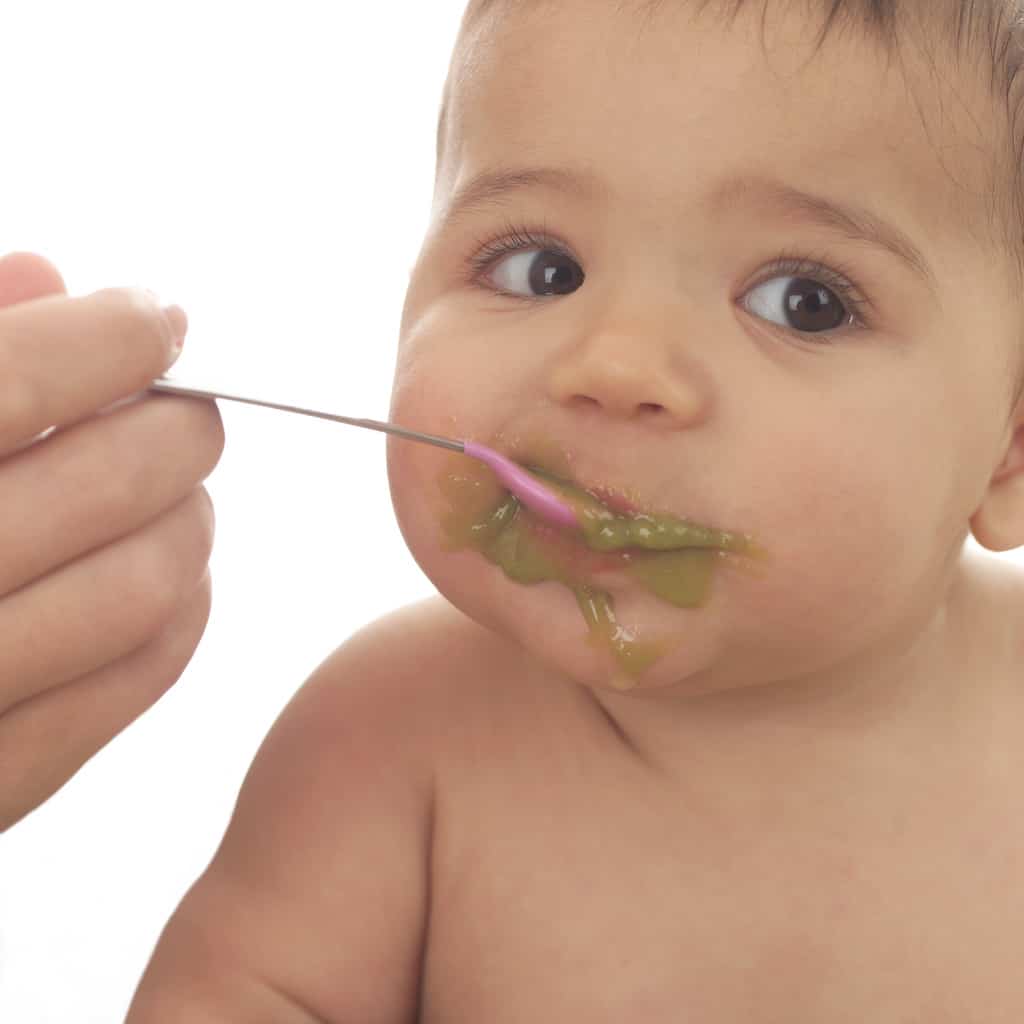1. There's No Crying In Baseball! No wishing for a life without food allergies. No thinking about how easy vacations would be, or how limited restaurant choices are. No looking at the neighbor's horrible brat and wishing you could transfer the allergy to him. No pity parties, period. Every kid gets something, and you can't always see what they're dealing with. Just play the game.
2. Cover Your Own Territory. Yes, I'm sure I'm a great shortstop...and left fielder...and even pitcher. But I have my own game to play at my own position. I cannot save the rest of the team. (Repeat it to yourself, FAB - you cannot save the rest of the team! Stay off those unmoderated chat boards!) I cannot change how they play their game. A "you go, girl!" or a positive, very respectful tip once the inning is over is all I can do. When I start telling other players they're doing it wrong, or there's only one way to do it, it's probably time to take a time out.
3. Keep Your Eye On The Ball. It's not about food additives, or vaccines or GMO. It's about food allergies. We need to avoid the foods we need to avoid. On the other hand, I need to commit to giving him every last food he can have, even if it makes me uncomfortable. Even if he used to be allergic and outgrew it (especially this -- keeping foods in the diet may be protective).
The day I start controlling through food is the day I start losing the game. It takes all my energy just to be a good food allergy player.
On the other hand, competition gets the juices flowing. Right? (And if your cleats are up...she probably deserved it.)
5. Games Are Won Because Skills Are Solid. It takes time to master a skill. It takes comprehensive accurate instruction, followed by years of practice.
First, I need to understanding the theory. That means learning and finding a good coach. Just as we don't learn baseball from only listening to the other kids in the dugout, we don't learn food allergies by only listening to the other mothers who may know less than we do.
Then, we need to practice, practice, practice. Malcolm Gladwell theorized that it takes 10,000 hours of practice to master a discipline. It's going to take 10,000 outings (and probably 5000 reminders) before my kid always takes his meds with him. It's going to take 10,000 meals to feel comfortable with ingredients and substitutions. I need to cut myself a break if I'm not in the Major Leagues after my first year. Everybody's a rookie at some point.
6. Respect the Ump. Umps are human. Doctors are human. They do the best they can with the information in front of their eyes. They have the best interest of the players in mind. Question the plays, not the man. (Or woman.)
Asking for one change of ump in a league might be understandable. But, when you're complaining about umps over and over, you gotta ask where the problem really lies.
Lots of people get hit by the ball. It's part of the game. A reaction during a food challenge is not the end of the world. The coaches and umps will throw you an ice pack and the game will go on.
If you never step up to the plate, you're definitely never going to get on base.
8. Call The Ball. Does it feel like you're catching everything that's even remotely in your territory and the guy standing next to you is asleep? WAKE HIM UP! There's nothing wrong with saying "that one's yours!" as long as there's enough time for him to prepare for it. If you don't call them, how is he ever going to know?
By the same measure, if it's in your space, a clear "I got it" is never a bad idea. Yes, it saves duplicate effort...but it also reminds the team of your value.
Seriously. I've been seeing a lot of "food allergy divorce" type searches creep up lately in my blog stats. Call the ball.
9. Celebrate The Victories. Nobody wins every game. Some teams simply have an advantage. Winning is really not what the game is about. It really is only about doing the best you can do.
Don't forget to celebrate together. You don't have to have an outright win to celebrate. Celebrate learning to run. Learning to just stand at the plate as the ball whizzes by your head. Learning to hold your mitt solid against the ground, even when the ball goes between your legs. If you are getting better every day, you're doing o.k.
10. Remember...It's Supposed To Be A Game. When you look back on these Glory Days, what will you remember?
Will you remember how hard it was? All the tears? The games you missed out on because you didn't have the right equipment or uniforms? The other players who taunted you and then beat your pants off?
Or will you remember the sunlight in the field? The glance between fielders and the trust that the other guy would catch the ball? That great feeling when the littlest kid on the team finally smacked it for a base hit?
This is the game. Get out there and play — and have fun!
Summer doesn't last forever.
Follow me on Facebook or Twitter





























